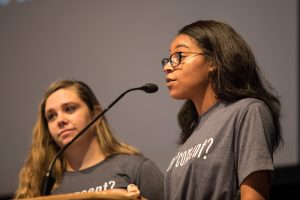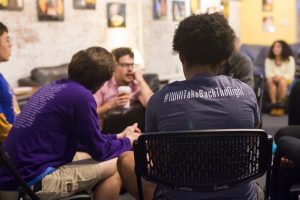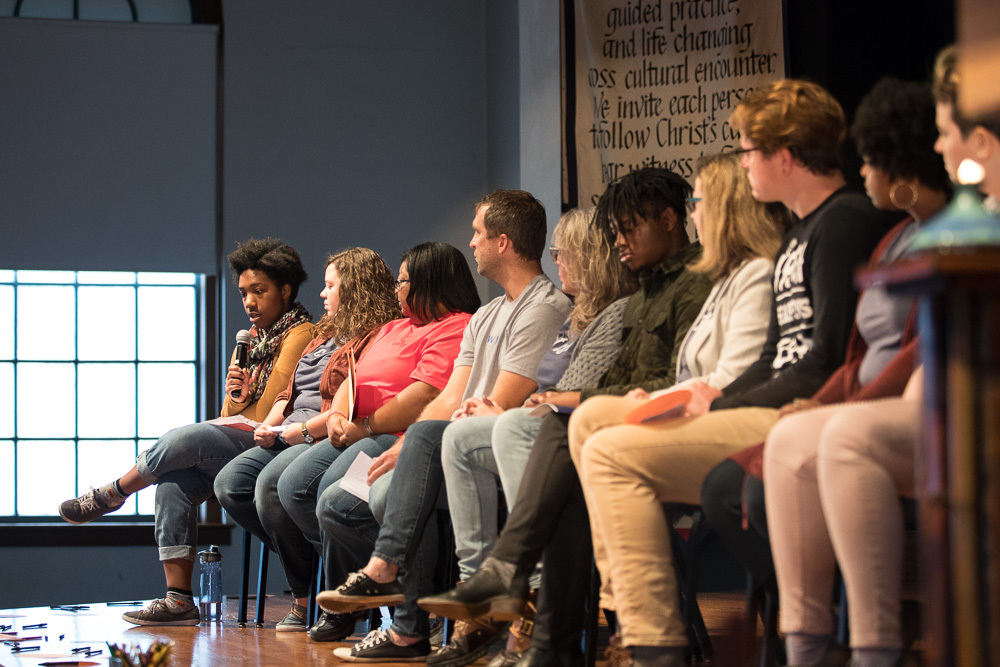The t-shirts made for Take Back the Night (TBTN) events at Eastern Mennonite University Oct. 31-Nov. 2 may have been seen as a humorous twist on a milk ad campaign, but they also made an important statement, said co-organizer Ana Hunter-Nickels. With “got consent?” on the front, and “#IWillTakeBackTheNight” on the back, the shirts were a “huge hit” – and reflected the events’ focus on consent and awareness.

Since the 1960s, TBTN events have been held in more than 36 countries and 800 communities, first in Belgium and England and then the ‘70s in Florida and, following the murder there of a woman walking home after work, in Philadelphia, Pennsylvania, according to the Take Back the Night Foundation’s website. The foundation seeks “to end sexual assault, domestic violence, dating violence, sexual abuse and all other forms of sexual violence” and “to create safe communities and respectful relationships through awareness events and initiatives.”
TBTN events have been held at EMU for about two decades.
This year, Hunter-Nickels said, event organizers had three goals: to engage the campus community in discussions about sexualized violence, consent, and the complexities of relationships, to engage male-identified persons on campus as a way to make room “for growth and change,” and to empower people to “make the change they want to see.”

“We have to become more accountable as a community,” she said, “accountable for holding spaces for conversations, accountable for having available resources for all, accountable for educating all ages, defining consent, and so much more.”
Events opened with a chapel service that began with the lighting of a candle and time of centering. After a short video about self-accountability, a panel of 11 students, faculty and staff offered reflections about why sexualized violence matters to them. The program concluded with a time for attendees to write #IWill statements related to preventing sexualized violence.
The campus community was also invited to an evening film showing and discussion.
Co-organizer Jasmine Wilson said the chapel and coffee house events “reminded us that we are not alone if we are experiencing violence,” she said – and “that no matter what experiences we have or haven’t had, someone in our community needs us.”

As panelist and associate dean of students Jonathan Swartz said, “We all know someone who has been harmed. Listen to them, ask the next gentle question, and bear witness to their strength.”
Three luncheons provided space for people to reflect on their own experiences and share stories, and a closing event for writing notes of encouragement to survivors, to be delivered to a local shelter.
“I clearly felt a sense of intentionality, understanding, and deep empathy,” Hunter-Nickels said. “Having these intentional spaces where people could speak openly felt meaningful. They were places where students, faculty, staff and community members could feel connected, heard, believed and supported.”
TBTN events this spring will focus on further education and prevention, Wilson said.
